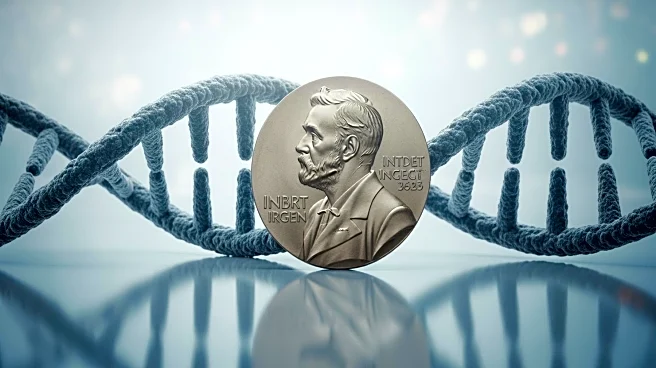What's Happening?
James Watson, renowned for co-discovering the double-helix structure of DNA in 1953, has died at the age of 97. His death was confirmed by Cold Spring Harbor Laboratory, where he conducted research for many years. Watson's groundbreaking work in molecular
biology earned him a Nobel Prize in 1962, shared with Maurice Wilkins and Francis Crick. Despite his scientific achievements, Watson's career was marred by controversial remarks on race and intelligence, leading to the stripping of his honorary titles in 2019. His comments, deemed unsupported by science, resulted in his ostracization from the scientific community.
Why It's Important?
James Watson's contributions to molecular biology have had a profound impact on scientific research, particularly in understanding DNA replication and genetic information. His work laid the foundation for numerous advancements in genetics and biotechnology. However, his controversial statements on race have sparked significant debate within the scientific community, highlighting the ethical responsibilities of scientists in public discourse. The stripping of his honorary titles underscores the importance of maintaining scientific integrity and the consequences of deviating from evidence-based research.
What's Next?
The scientific community continues to grapple with the legacy of James Watson, balancing his monumental contributions to science with the controversies surrounding his personal views. Institutions may further evaluate the ethical standards and public responsibilities of scientists, potentially influencing future policies on honorary recognitions and public statements. The discourse around Watson's remarks may also prompt broader discussions on race, intelligence, and the role of science in societal issues.
Beyond the Headlines
Watson's story serves as a reminder of the complex interplay between scientific achievement and personal conduct. It raises questions about the extent to which personal beliefs should impact professional recognition and the responsibilities of scientists to uphold ethical standards. The case may influence how future generations of scientists approach public engagement and the dissemination of scientific knowledge.















